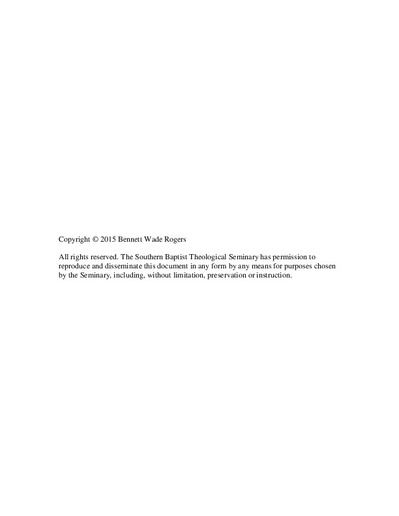| dc.description.abstract | This dissertation is an intellectual biography of John Charles Ryle, the first Bishop of Liverpool. Chapter 1 focuses on Ryle’s intellectual, theological, and spiritual formation. Special attention is given to his home, education at Eton and Oxford, conversion, religious opinions, and unexpected entrance into ministry.
Chapter 2 discusses Ryle’s preaching, based primarily on the sermons he preached at Helmingham (1844-1861). It begins by tracing his homiletical development, which culminated in the development of a more simple and direct style of preaching that brought him national acclaim. This “crucified style” will then be analyzed in light of his classical rhetorical training as well as Victorian homiletical theory. The chapter will conclude with a rhetorical comparison of sermons preached by J. C. Ryle, John Henry Newman, and Charles Haddon Spurgeon on John 11.
Chapter 3 examines Ryle’s pastoral theology by looking at a series of pastoral writings he began publishing at Helmingham. These include evangelical tracts, practical (devotional) commentaries on the four canonical gospels, and a series of less well-known hymn-books.
Chapter 4 focuses on Ryle as a theological controversialist and champion of the Evangelical party. His writings against ritualism, neologianism, and Keswick spirituality are examined, and his role in these various debates are discussed.
Chapter 5 discusses the role Ryle played as a nationally recognized leader of the Church of England. Attention is given to his attempts to unify the Evangelical party, his defense of the establishment, and his proposals for church reform.
Chapter 6 examines Ryle’s episcopacy in Liverpool from 1880 to 1900. The chapter begins with a discussion of the state of the diocese before his appointment. This is followed by an analysis of his diocesan strategy to reach the “masses.” The chapter is concluded by considering Ryle’s major concerns for the Church of England in the closing decades of the nineteenth century. | en_US |

